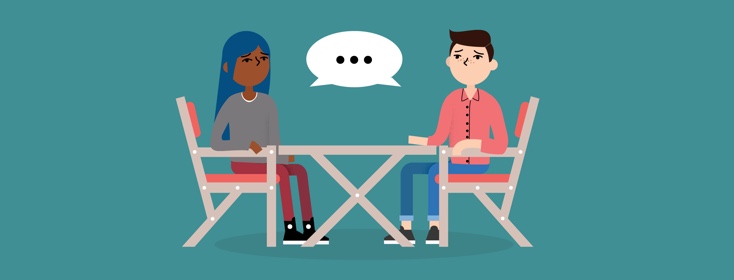When Pain Silences You: Coping When My Jaw Flares Up
If you’ve ever met me, you’d know I’m quite shy. But the moment I warm up to you, you’ll realize I always have something to say. My family and friends can attest to this. I’m quite a chatterbox! There’s always something to mention or discuss, if only for the sake of having a conversation. But there are times pain renders me completely silent; whenever my jaw flares up, I find my voice disappears.
Jaw pain is the worst pain
Flares of the jaw can cause a lot of stiffness and pain. I find myself constantly clenching my teeth together involuntarily, and I have to constantly remind myself to keep my mouth slightly open to relieve the stiffness. The pain can be horrendous, and even slight movements of my neck can trigger pain. It’s really hard to cope with sometimes. Flares often mean special treatments, such as having a soft food diet and doing jaw stretches when possible. It also means I try to limit my speaking (and no singing in the shower). Those are the times I feel most powerless, because I can’t communicate what I’m feeling in the way I love.
It’s during these times I take a lot of solace in writing. It’s not my favorite, but it helps me share my thoughts in a way that isn’t so painful. But it also seems silly to have to write just to communicate deep thoughts with my loved ones, when normally we’d have intimate, active conversations. Sometimes I become a little more introverted during flares so I don’t miss those conversations as much.
Stuck in the silence during a flare
But just the other night, I had a horrible jaw flare suddenly arise. I sat there, my jaw slightly ajar as my boyfriend looked on. I thought of everything I wanted to tell him, but kept my thoughts to myself. But what really hurt was when he began to get concerned. His natural reaction was to talk to me, and he desperately wanted to hear my response.
“What’s wrong?” “What’s hurting?” “How can I help?” “Should I get you ice?” “How about a warm compress?” “Do you want some pain medicine?” “Will lying down help?” “What can I do for you?”
I felt stuck in silence as my heart felt heavy with emotion. I tried to nod or choke out one-word responses, but it was nothing compared to all the words I wanted to say to him; I wanted to reassure him everything would be okay. There came a point when I was ready to shout to the world that I’m so frustrated with this stupid disease and all its pain. I wanted to tell him how scared I was, since it came on so rapidly. I was angry that my past treatments weren’t helping, and I was sad at the thought of another flare. Hand squeezes and single tears rolling down my face can only say so much when even a good cry hurts.
But it'll be okay
But I realized that it’s okay to be upset. It’s okay to cry. At the end of the day, we need to talk about how we are feeling. So maybe I never got to speak my words of frustration, but I put them down on paper and wrote this article. And that’s something. Finding an outlet is so important, and everyone's outlet is different and may change with time or circumstance. As a teenager, I would do pen drawings to express my pain, and now I use words. Never let pain leave you silent. You have a voice, and sharing your thoughts, feelings, hopes, and experience can help you get through anything. You can do it.

Join the conversation